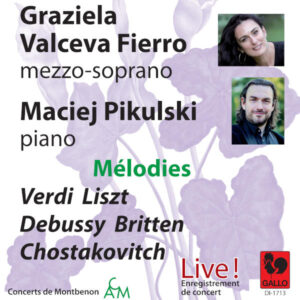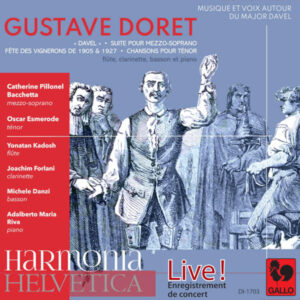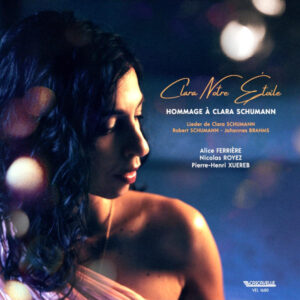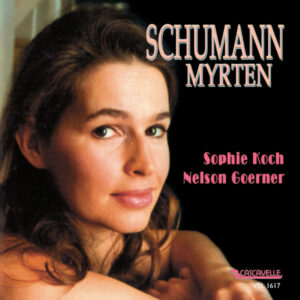Extraits / Excerpts
Frank Martin: Der Cornet: Die Weise von Liebe und Tod des Cornets Christoph Rilke - Brigitte Balleys, Orchestre de Chambre de Lausanne, Jesús López Cobos
Frank Martin: Der Cornet: Die Weise von Liebe und Tod des Cornets Christoph Rilke
Reiten – Der kleine Marquis – Jemand erzählt von seiner Mutter – Nachtfeuer – Das Heer – Ein Tag durch den Tross – Spork – Der Schrei – Der Brief – Das Schloss – Rast – Das Fest – Und einer steht… – Bist du die Nacht? – Hast du vergessen…? – Die Turmstube – Im Vorsaal – War ein Fenster offen – Ist das der Morgen? – Aber die Fahne ist nicht dabei – Die Fahne – Der Tod – Im nächsten Frühjahr.
Brigitte Balleys, Mezzo-Soprano – Orchestre de Chambre de Lausanne, Jesus Lopez Cobos, Conductor.
THE CORNET (1942-1943)
In 1942, I was looking for a text that could serve as a basis for a cycle of Lieder with piano, when my wife introduced me to Rilke’s admirable prose poem: Die Weise von Liebe und Tod des Cornets Christoph Rilke. This work is very little known to the French-speaking public; it is almost untranslatable and, in fact, the translations that can be found in bookstores seriously disfigure it. From the first moment I was enthusiastic about this story, so strong and at the same time so brief and delicate, but I rejected it at first; it was not suitable for my purpose: a suite of twenty or so Lieder, isn’t that a bit much? Moreover, Rilke’s story, although divided into small tableaux, is a lyrical epic of the evolution of a feeling, which seems to me to be the necessary literary basis for a song cycle. Finally, I was very much afraid of setting a text in a language that is not my own, having always aimed to find the exact form and expression of the language in the vocal composition.
However, the power and charm of Rilke’s work shook these resistances. The encounter with Elisabeth Gehri and the possibility of having her as a performer decided me to give up my Lieder cycle and to undertake a more extensive work. The encouragement I received from Paul Sacher completed my decision and gave my project its definitive form, by offering me the finesse and transparency of a chamber orchestra as a partner for the alto voice. Nothing could better suit this text: an epic poem, but of an infinitely brief and delicate notation, all in nuances, even in the harshness of the warlike paintings. The small orchestra was able to express all the color without overpowering it by the sheer mass of performers. As for the form, the division into tableaux that I had been able to make in the Vin Herbé without altering Bédier’s text, I found it, in the hand of the poet himself, in that of Rilke, even clearer, and more characterized. The question of the German language was solved by close collaboration with my wife, for whom it is like a second mother tongue. Thus we often discussed and fixed together the importance, the duration and the relative pitch of the various syllables of this text, as well as the always fine, often complex and fleeting nuances of expression which make the charm of Rilke.
What can I say about the music, except that I have sought, for each painting, a musical form as adequate as possible to its literary form, and that I have also sought to preserve the character of each fragment, whether it is a simple narrative, a description, a lyrical explosion or a deepening of feelings. In short, I have tried to remain as faithful as possible to this text, as faithful as my deep admiration dictated. For me, to have lived a year in his company, better still to have relived this text, word by word, for a long time, scrutinizing all its finesses, experiencing all its emotional power, I keep more than the memory of a beloved work and a joy of the spirit; it has somehow become part of my life. My dearest wish is that some people may find in my music a little of what Rilke’s poem has given me.
Frank Martin
(in ” A propos de… “Ed. La Baconnière)
- Categories
- Composers
- Interprets
- Booklet












